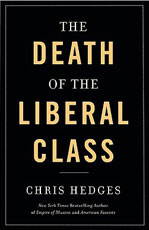"The trial of the Catonsville Nine altered resistance to the Vietnam War, moving activists from street protests to repeated acts of civil disobedience, including the burning of draft cards. It also signaled a seismic shift within the Catholic Church, propelling radical priests and nuns led by the Berrigans, Thomas Merton, and Dorothy Day to the center of a religiously inspired social movement that challenged not only church and state authority but also the myths and ideologies Americans used to define, enrich, and empower themselves.
" 'Dorothy Day taught me more than all the theologians,' Berrigan said. 'She awakened me to connections I had not thought of or been instructed in, the equation of human misery and poverty and war-making. She had a basic hope that God created the world with enough for everyone, but there was not enough for everyone and war-making.'
"Berrigan's relationship with Day led to a close friendship with the writer and Trappist monk Thomas Merton. Merton's 'great contribution to the religious left,' Berrigan said, 'was to gather us for days of prayer and discussion of the sacramental life. He told us, "Stay with these, stay with these, these are your tools and discipline, and these are your strengths."
" 'He could be very tough,' Berrigan noted of Merton. 'He said, "You are not going to survive America unless you are faithful to your discipline and tradition." ' Merton's death at fifty-three — a few weeks after Berrigan's trial — left Berrigan 'deaf and dumb.'
" 'I could not talk or write about him for ten years,' he said. 'He was with me when I was shipped out of the country, and he was with me in jail. He was with his friend.'
"The distractions of the world are for Berrigan just that: distractions. The presidential election campaign between Barack Obama and John McCain, under way when we spoke, did not preoccupy him, and when I asked him about it, he quoted his brother, Philip, who said that 'if voting made any difference it would be illegal.' He was critical of the Catholic Church, saying that Pope John Paul II, who marginalized and silenced radical nuns and priests like the Berrigans, 'introduced Soviet methods into the Catholic Church,' including 'anonymous delations, removals, scrutiny, and secrecy, and the placing of company men into positions of great power.' He estimated that 'it is going to take at least a generation to undo appointments of John Paul II.'
"Berrigan despaired of universities, especially Boston College's decision to give an honorary degree to Secretary of State Condoleezza Rice, and to invite then-attorney general Michael Mukasey to address the law school. 'It is a portrayal of shabby lives as exemplary and to be honored,' he said. And he has little time for secular radicals or the liberal class who stood with him forty years ago but who have now 'disappeared into the matrix of money and regular jobs or gave up on their initial discipline.'
" 'The short fuse of the American left is typical of the highs and lows of American emotional life,' he said. 'It is very rare to sustain a movement in recognizable form without a spiritual basis of some kind.'
"While all empires rise and fall, Berrigan said, it is the religious and moral values, and the nonhistorical values, of compassion, simplicity, love, and justice that endure and alone demand fealty. The current decline of American power is part of the cycle of human civilizations, although, he said ruefully, 'the tragedy across the globe is that we are pulling down so many others. We are not falling gracefully. Many, many people are paying with their lives for this.'
"Berrigan argued that those who seek a just society, who seek to defy war and violence, who decry the assault of globalization and degradation of the environment, who care about the plight of the poor, should stop worrying about the practical, short-term effects of their resistance."
